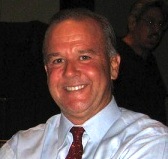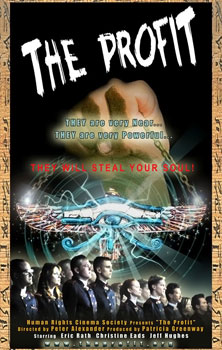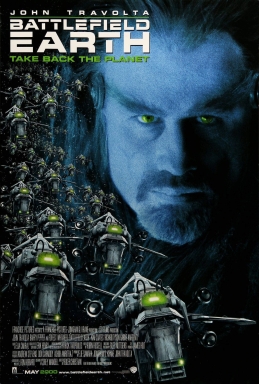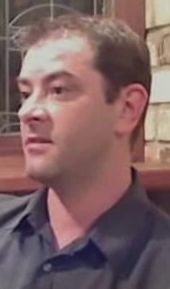Related Research Articles

Since its inception in 1954, the Church of Scientology has been involved in a number of controversies, including its stance on psychiatry, Scientology's legitimacy as a religion, the Church's aggressive attitude in dealing with its perceived enemies and critics, allegations of mistreatment of members, and predatory financial practices; for example, the high cost of religious training:191 and perceived exploitative practices. When mainstream media outlets have reported alleged abuses, representatives of the church have tended to deny such allegations.

David Miscavige is an American Scientologist who is serving as the second and current leader of the Church of Scientology. His official title within the organization is Chairman of the Board of the Religious Technology Center. RTC is a corporation that controls the trademarks and copyrights of Dianetics and Scientology. He is also referred to within the Scientology organization as "DM", "COB", and "Captain of the Sea Org".
Jessica Feshbach, also known as Jessica Feshbach Rodriguez and Jessica Davis, is an American former official within the Church of Scientology organization. The daughter of a family with a long tradition in Scientology, she attended The Delphian School in Yamhill County, Oregon, a Scientology school.

The Church of Scientology is a group of interconnected corporate entities and other organizations devoted to the practice, administration and dissemination of Scientology, which is variously defined as a cult, a business, or a new religious movement. The movement has been the subject of a number of controversies, and the Church of Scientology has been described by government inquiries, international parliamentary bodies, scholars, law lords, and numerous superior court judgements as both a dangerous cult and a manipulative profit-making business.
Scientology has been referenced in popular culture in many different forms of media including fiction, film, music, television and theatre. In the 1960s, author William S. Burroughs wrote about Scientology in both fictional short stories and non-fictional essays. The topic was dealt with more directly in his book, Ali's Smile/Naked Scientology. The 2000 film Battlefield Earth was an adaptation of a novel by L. Ron Hubbard.

Tory Christman is an American critic of Scientology and former member of the organization. Originally brought up a Catholic, Christman turned to Scientology after being introduced to the book Dianetics: The Modern Science of Mental Health authored by Scientology founder L. Ron Hubbard while staying with her parents in Chicago. She identified with concepts described in the book including the idea of attaining the Scientology state of clear, and became a member of the organization in 1969. She hitchhiked from Chicago to Los Angeles, in order to begin the process of studying Scientology, and initially felt that it helped improve her life. In 1972, she joined the core group of staff members within Scientology called the Sea Org. After being a member of the Scientology organization for ten years, Christman reached the spiritual Operating Thetan level of OT III, and learned the story of Xenu. She subsequently rose to a higher Operating Thetan level of OT VII, the second-highest within the organization. Her medical condition of epilepsy caused difficulty while in Scientology, as the organization did not approve of taking medication in order to manage her condition.

Mark C. "Marty" Rathbun is a former senior executive of the Church of Scientology who last held the post of Inspector General of the Religious Technology Center (RTC), the organization that is responsible for the protection and enforcement of all Dianetics and Scientology copyrights and trademarks.

"Trapped in the Closet" is the twelfth episode in the ninth season of the American animated television series South Park. The 137th episode of the series overall, it originally aired on Comedy Central in the United States on November 16, 2005. In the episode, Stan joins Scientology in an attempt to find something "fun and free". After the discovery of his surprisingly high "thetan levels", he is recognized as the reincarnation of L. Ron Hubbard, the founder of the church. The episode was written and directed by series co-creator Trey Parker, who was credited as John Smith.

This is a Timeline of Scientology and its forerunner Dianetics, particularly its foundation and development by author L. Ron Hubbard as well as general publications, articles, books and other milestones.

The Profit is a feature film written and directed by Peter N. Alexander. The film premiered at the Cannes Film Festival in France in 2001. Distribution of the film was prohibited by an American court order which was a result of a lawsuit brought by the Church of Scientology, although the filmmaker says that the film is not about Scientology. As a result, The Disinformation Book Of Lists and The Times have characterized The Profit as a banned film in the United States.

Battlefield Earth is a 2000 American science fiction film based on the 1982 novel of the same name by Scientology founder L. Ron Hubbard. It was directed by Roger Christian and stars John Travolta, Barry Pepper, and Forest Whitaker. The film follows a rebellion against the alien Psychlos, who have ruled Earth for 1,000 years.

Thomas William Davis is an American financial executive. From 2005 to 2011, Davis was the head of external affairs and chief spokesperson of the Church of Scientology International and Senior Vice President at the Church of Scientology Celebrity Centre International from the early 1990s. Between 2011 and 2013, Davis did not make any media public appearances. In June 2013, it was revealed Davis and his wife had relocated from Gold Base in Riverside County, California, to Austin, Texas. He currently resides in Los Angeles.

Recognition of Scientology and the Church of Scientology varies from country to country with respect to state recognition for religious status, charitable status, or tax exempt status. Decisions are contingent upon the legal constructs of each individual country, and results are not uniform worldwide. For example, the absence of a clear definition for 'religion' or 'religious worship' has resulted in unresolved and uncertain status for Scientology in some countries.

Scientology is a set of beliefs and practices invented by the American author L. Ron Hubbard, and an associated movement. It is variously defined as a cult, a business, a religion, or a scam. Hubbard initially developed a set of ideas that he called Dianetics, which he represented as a form of therapy. An organization that he established in 1950 to promote it went bankrupt, and Hubbard lost the rights to his book Dianetics in 1952. He then recharacterized his ideas as a religion, likely for tax purposes, and renamed them Scientology. By 1954, he had regained the rights to Dianetics and founded the Church of Scientology, which remains the largest organization promoting Scientology. There are practitioners independent of the Church, in what is referred to as the Free Zone. Estimates put the number of Scientologists at under 40,000 worldwide.

The Church of Scientology has operated in Germany since 1970. German authorities estimate that there are 3,500 active Scientologists in Germany as of 2019. The Church of Scientology gives a membership figure of around 12,000. The Church of Scientology has encountered particular antagonism from the German press and government and occupies a precarious legal, social, and cultural position in Germany.

Aaron Saxton is a former Scientologist and member of the organisation's elite group called the Sea Org. He contacted Senator Nick Xenophon of Australia, who quoted statements by Saxton about Scientology into the parliamentary record of the Australian Senate in November 2009. That speech caused a furor according to The Courier-Mail, The New Zealand Herald and other media.
A series of incidents in 2009 led to Church of Scientology–owned networks being blocked from making edits to Wikipedia articles relating to Scientology. The Church of Scientology has long had a controversial history on the Internet and had initiated campaigns to manipulate material and remove information critical of itself from the web. From early in Wikipedia's history, conflict arose regarding the website's coverage of Scientology. Disputes began in earnest in 2005, with users disagreeing about whether or not to describe Scientology as an abusive cult or religion, and continued through the decade.

My Scientology Movie is a 2015 British documentary film about Scientology directed by John Dower, and written by and starring Louis Theroux. The film takes an unconventional approach to the subject matter, featuring young actors "auditioning" for parts playing high-profile Scientologists in scenes recreating accounts from ex-members about incidents involving senior church management. The Church of Scientology responded by putting the filmmakers under surveillance and denouncing the film.

Dagmar Enkelmann is a German politician of Die Linke party.
References
- 1 2 Kirchner, Stephanie (24 March 2010). "German Movie Angers Scientologists, Prompts Rival Film - TIME". Time magazine. Berlin. Archived from the original on 26 March 2010. Retrieved 12 October 2012.
- 1 2 Müller, Martin U. (2 February 2010). "Based on a True Story: TV Movie Portrays Dark Side of Scientology". Hamburg, DE: Der Spiegel Online. Retrieved 12 October 2012.
- ↑ Connolly, Kate (11 March 2010). "Scientologists try to block 'intolerant' German feature film". The Guardian. London. Retrieved 12 October 2012.
- ↑ "Scientologists try to ban critical German feature film". Telegraph. London. 12 March 2010. Retrieved 12 October 2012.
- ↑ Bates, Theunis (13 March 2010). "Scientologists Accuse German Film of 'Intolerance'". AOL News. Archived from the original on 12 June 2010. Retrieved 12 October 2012.
- ↑ "Bis nichts mehr bleibt: Quotenerfolg für Scientology-Film" [Until Nothing Remains ratings success for Scientology film] (in German). Der Spiegel Online. 1 April 2010. Retrieved 12 October 2012. (Eng. tr.)
- ↑ Fröhlingsdorf, Michael (25 March 2010). "Scientology gegen ARD: "Geschichten, die vorne und hinten nicht stimmen"" [Scientology versus ARD: "Stories that are not true front and rear"] (in German). Der Spiegel online. Retrieved 12 October 2012. (Eng. tr)